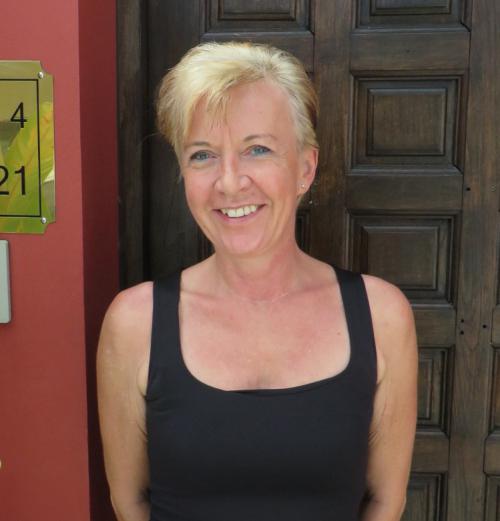Phuket Opinion: Creating a family for the ill far from home

Anita Somaini, 51, is the owner of Baan Tschuai Duu Lää, a nursing facility in Rawai. She has degrees in nursing, emergency nursing and pharmacology and worked for 20 years in hospitals, geriatric institutes and pharmaceutical companies in her native Switzerland. She came to Phuket in 2010.
Here, she talks about why Phuket is a good place for a nursing home, and explains how she cares for patients with Alzheimer’s and dementia.
PHUKET: I worked for years in medical and geriatric facilities in Switzerland and I became convinced that a nursing home abroad could provide a better quality of care, because of lower costs.
In a rough comparison between Switzerland and Phuket, we figured that for one third the money in Phuket, you get eight times more caregiver attention.
I wanted to create a nursing home on an intimate scale. Since our patients have left their families to join us, I wanted to give them the feeling of being with another family in a warm and cozy place. My desire was to create a five-star facility in every respect, from level of care to food to facilities to furniture in the room.
Our patients – I call them guests – live in normal houses, as families do, on a small cul-de-sac. We have four houses now, with one more under construction. Once that’s completed, we won’t expand anymore. We think getting bigger than that would affect the kind of care we want to give.
The houses are identical, with four private bedrooms with en suite bathroom, a kitchen, living room and small swimming pool. They’re not huge – I wanted them to be on the same scale as our guests’ houses probably were.
One of the houses is the main building, which is our social center. Guests eat together there, do activities, or relax and receive treatments such as massage or manicures around the pool. Our guests come and go between their homes and the main building as they please.
Right now we have eight Swiss guests, one American and one German. They suffer from Alzheimer’s, dementia, or Parkinson’s, but we also accept patients with other illnesses and those who need rehabilitation after a stroke, surgery or an accident.
If necessary, we are able to provide round-the-clock care. In that case, the guest has three nurses who take care of him, always the same three, working on eight-hour shifts. The night-shift nurse sleeps in the same room with the guest.
The one-on-one care leads to close staff-guest relationships. Some of our guests with Alzheimer’s or dementia lose the ability to communicate as their disease progresses – either they can’t talk or they can’t be understood when they talk. But because the staff know them well, they are able to understand what they need.
In nursing institutions elsewhere, Alzheimer’s and dementia patients sometimes need to be medically “calmed down” because there isn’t the manpower to care for them. Here that’s not necessary, and sometimes we can even reduce medications.
Another benefit of our staff-to-guest ratio is that guests have the opportunity to do a wide range of activities, such as painting, music, games, singing and swimming. Sometimes they help with cooking or garden work, as they did at home. Our aim is to maintain or improve the physical and mental abilities of guests for as long as possible.
All of the staff who work with guests are nursing school graduates – we have 37 nurses, including a head nurse. We also have a relationship with Bangkok Hospital Phuket, where we send our nurses for refresher courses. Once every month or so a doctor visits to do checkups.
All of the guests staying with us now will be here until the end of their lives, but we can accommodate short stays too. If a family is taking care of a relative themselves, they may want time off, and can bring their family member here for a short period.
It might seem counterintuitive, but sometimes the best care for a loved one isn’t at home, it’s abroad.
— Leslie Porterfield
Latest Thailand News
Follow The Thaiger on Google News:
























